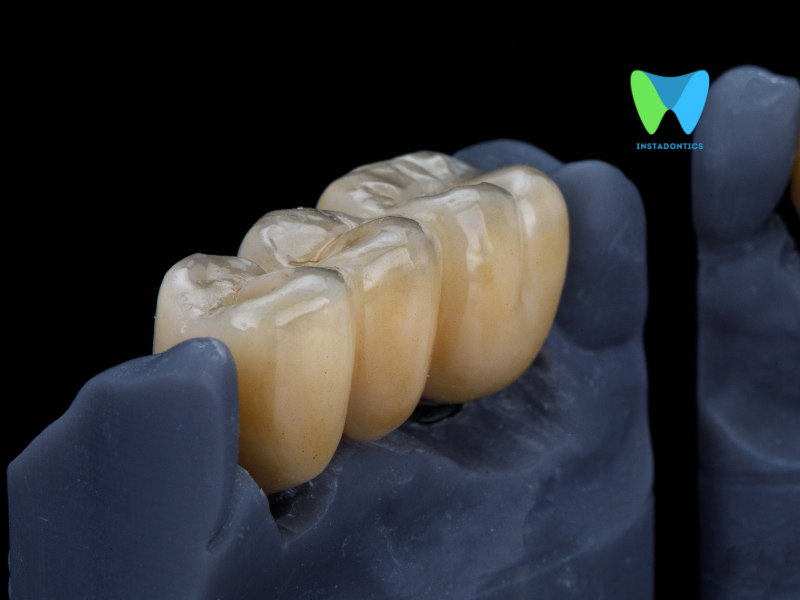Have you ever bitten into an ice cream cone and felt a sharp, shooting pain in your teeth? That’s tooth sensitivity for you. It’s a common dental issue that affects a large number of people, making it difficult to enjoy hot, cold, sweet, or acidic foods and drinks. The discomfort can range from mild twinges to intense, lingering pain, depending on the severity of the condition.
Ignoring tooth sensitivity can lead to more serious dental problems down the line. When the sensitive areas of the teeth are exposed, it can increase the risk of tooth decay, infection, and even tooth loss. By understanding its causes and finding effective treatments, you can improve your quality of life, reduce the risk of further complications, and maintain a healthy, pain-free smile.
This comprehensive article will delve into the nitty-gritty of tooth sensitivity, exploring its causes, symptoms, diagnosis, and various treatment options in detail. We’ll also share valuable insights from dental experts, along with some tried-and-true home remedies, preventive measures, and personal stories to give you a well-rounded understanding of this common condition.
Tooth Sensitivity | A Closer Look
Tooth sensitivity, also known as dentin hypersensitivity, occurs when the inner layers of the teeth, particularly the dentin, are exposed.
The dentin is the layer beneath the enamel that contains tiny tubules connected to the nerve endings. When these tubules are exposed due to worn enamel, receding gums, or other dental issues, they allow stimuli like hot, cold, sweet, or acidic foods and drinks to reach the nerves inside the teeth, causing pain or discomfort.
How Tooth Sensitivity Develops
Tooth sensitivity develops gradually as the protective layers of the teeth become compromised over time. The enamel, which is the hard outer layer of the teeth, acts as a shield against temperature changes, acidic substances, and other stimuli. When the enamel wears away due to various factors, it exposes the underlying dentin, which is more porous and less resistant to these stimuli. Similarly, if the gums recede, they can expose the root surfaces of the teeth, which are not covered by enamel, leading to sensitivity.
Common Causes of Tooth Sensitivity
While tooth sensitivity can have multiple underlying causes, some of the most common culprits include:
Enamel Erosion
Enamel erosion is a leading cause of tooth sensitivity. It occurs when the outer protective layer of the teeth, the enamel, wears away, exposing the underlying dentin. This erosion can be caused by a variety of factors, such as:
- Acidic foods and drinks (e.g., citrus fruits, sodas, sports drinks)
- Aggressive brushing or abrasive toothpaste
- Stomach acid from conditions like acid reflux or bulimia
- Environmental factors like swimming in chlorinated pools
Gum Recession
Gum recession is another common cause of tooth sensitivity. As the gums recede, they can expose the roots of the teeth, which are not covered by enamel. Instead, the roots are covered by a thin layer called cementum, which is less resistant to temperature changes and other stimuli. This exposure can make the teeth more sensitive to temperature changes, touch, and certain foods and drinks.
Tooth Decay
Cavities or tooth decay can create holes or openings in the enamel, exposing the dentin and leading to sensitivity. As tooth decay progresses, it can reach deeper into the tooth, increasing the risk of sensitivity and other complications.
Dental Procedures
Certain dental procedures, such as teeth whitening, fillings, crowns, or cleanings, can temporarily increase tooth sensitivity. These treatments can cause microscopic cracks or irritation to the tooth surfaces, leading to short-term sensitivity.
Cracked or Chipped Teeth
Cracks or chips in the teeth, whether due to trauma or grinding habits, can expose the dentin and cause sensitivity to hot, cold, sweet, or acidic substances.

Symptoms of Tooth Sensitivity
While the primary symptom of tooth sensitivity is pain or discomfort when consuming certain foods and drinks, there are other signs and characteristics to be aware of:
Pain Triggers
Tooth sensitivity can be triggered by a variety of factors, including:
- Hot or cold foods and drinks
- Sweet or acidic foods and drinks
- Breathing in cold air
- Brushing or flossing
Severity of Pain
The severity of pain associated with tooth sensitivity can vary from a mild twinge or discomfort to intense, sharp pain that can linger for several minutes or even hours after exposure to the trigger.
Duration of Symptoms
The duration of sensitivity can range from a few seconds to several minutes, depending on the cause and severity of the condition. In some cases, the sensitivity may be chronic and persistent, lasting for weeks or months without proper treatment.
Diagnosing Tooth Sensitivity
If you’re experiencing tooth sensitivity, it’s important to consult with a dentist to determine the underlying cause and receive appropriate treatment. Your dentist may use the following methods to diagnose tooth sensitivity:
Visual Examination
During a visual examination, your dentist will carefully inspect your teeth and gums, looking for signs of enamel erosion, gum recession, cavities, or other dental issues that may be contributing to your sensitivity.
Dental X-rays
X-rays can help identify underlying issues that may not be visible to the naked eye, such as tooth decay, fractures, or other structural problems that could be causing sensitivity.
Cold Sensitivity Test
In this test, your dentist will apply a cold stimulus, such as a cotton swab dipped in ice water, to the affected teeth. If you experience discomfort or pain, it may indicate that the dentin is exposed and sensitive.
Percussion Test
A percussion test involves tapping on the teeth with a dental instrument to identify areas of pain or discomfort. This test can help determine if the sensitivity is coming from a specific tooth or area of the mouth.
Treatment Options
Once the cause of your tooth sensitivity has been identified, your dentist will recommend the appropriate treatment option. Here are some common treatments for tooth sensitivity:
Desensitizing Toothpaste
Desensitizing toothpaste can help reduce sensitivity by blocking the pathways to the nerves. These toothpastes contain specialized ingredients like potassium nitrate or strontium chloride that can desensitize the exposed dentin. Regular use of desensitizing toothpaste can provide significant relief over time.
Fluoride Treatments
Fluoride treatments can help strengthen the enamel and reduce sensitivity. These treatments can be applied at the dentist’s office or at home with prescribed fluoride products, such as gels, varnishes, or rinses. Fluoride helps remineralize the tooth surface, creating a protective barrier against stimuli that cause sensitivity.
Dental Sealants
Dental sealants are thin, protective coatings that can be applied to the exposed areas of the teeth, such as the root surfaces or areas of enamel erosion. These sealants act as a barrier, protecting the dentin from stimuli that cause sensitivity.
Root Canal Therapy
In severe cases of tooth sensitivity, where the nerve inside the tooth has become inflamed or damaged, a root canal procedure may be necessary. During this procedure, the pulp (living tissue inside the tooth) is removed, and the inside of the tooth is cleaned, disinfected, and sealed, effectively eliminating the sensitivity.
Gum Grafts
For cases of tooth sensitivity caused by gum recession, a gum graft procedure may be recommended. In this procedure, a small piece of gum tissue is taken from another area of the mouth and grafted onto the receded area, covering the exposed root surfaces and reducing sensitivity.
Home Remedies
In addition to professional treatments, there are several home remedies that can provide temporary relief from tooth sensitivity:
Saltwater Rinse
Rinsing your mouth with warm saltwater can help reduce inflammation and provide temporary relief from tooth sensitivity. The saltwater acts as a mild antiseptic, soothing the sensitive areas and promoting healing.
Honey and Warm Water
Honey has natural antibacterial and anti-inflammatory properties that can help soothe sensitive teeth. Mix a tablespoon of honey with warm water and use it as a gentle mouth rinse.
Green Tea
Green tea contains antioxidants and compounds that can help strengthen teeth and reduce sensitivity. Rinsing your mouth with cool green tea or applying it directly to the sensitive areas can provide relief.
Clove Oil
Clove oil has natural analgesic (pain-relieving) properties that can help reduce tooth sensitivity. Apply a small amount of clove oil to the affected area using a cotton ball or your fingertip.
Baking Soda
Baking soda can help neutralize acids and provide relief from tooth sensitivity when used as a paste on the teeth. Mix a small amount of baking soda with water and gently brush the paste onto your teeth.
It’s important to note that while home remedies can provide temporary relief, they should not be used as a substitute for professional dental treatment. If your tooth sensitivity persists or worsens, it’s essential to consult with a dentist for proper diagnosis and treatment.
Preventive Measures
While tooth sensitivity can sometimes be unavoidable, there are several preventive measures you can take to reduce your risk and maintain good oral health:
Proper Brushing Techniques
Using proper brushing techniques can help protect your enamel and reduce the risk of sensitivity. Brush gently with a soft-bristled toothbrush, using short, circular motions. Avoid vigorous scrubbing, which can wear down the enamel over time.
Using Soft-Bristled Toothbrushes
Soft-bristled toothbrushes are gentler on your enamel and gums, reducing the likelihood of enamel erosion and gum recession, which can lead to sensitivity.
Limiting Acidic Food and Drink
Acidic foods and drinks, such as citrus fruits, sodas, and sports drinks, can erode your enamel and increase the risk of sensitivity. Limit your consumption of these items and rinse your mouth with water after consuming them.
Regular Dental Check-ups
Regular dental check-ups and professional cleanings can help identify and address dental issues before they lead to sensitivity. Your dentist can also provide personalized advice on maintaining good oral health and preventing sensitivity.
Using a Mouthguard
If you grind your teeth at night (a condition known as bruxism), wearing a custom-fitted mouthguard can help protect your teeth from the potential damage and sensitivity caused by grinding.
Summary of Key Points
Tooth sensitivity is a common dental issue that can cause significant discomfort and impact an individual’s quality of life. Understanding its causes, such as enamel erosion, gum recession, tooth decay, and dental procedures, is crucial in finding effective treatments and preventive measures.
Early diagnosis and treatment of tooth sensitivity are essential to prevent more serious dental problems and improve overall oral health. By identifying and addressing the underlying cause, whether through professional treatments like desensitizing agents, sealants, or gum grafts, or lifestyle modifications like dietary changes and improved oral hygiene habits, individuals can find relief from the pain and discomfort associated with this condition.
Maintaining good oral hygiene, using proper brushing techniques, and scheduling regular dental check-ups are crucial steps in preventing tooth sensitivity and promoting long-term oral health. By taking a proactive approach and seeking professional guidance, individuals can protect their teeth and enjoy a lifetime of comfortable, pain-free eating and drinking.
If you’re experiencing tooth sensitivity, don’t wait. Consult your dentist for a proper diagnosis and treatment plan tailored to your specific needs. With the right care and preventive measures, you can regain control over your oral health and enjoy the simple pleasures of life without the constant fear of pain or discomfort.



